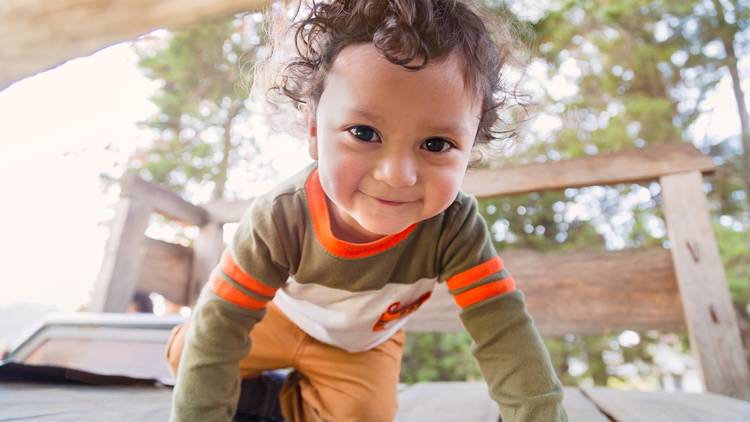Along with a group of community partners, the Association for Supportive Child Care (ASCC) developed the Arizona Kith and Kin Project in 1999 to strengthen the quality of family, friend, and neighbor (FFN) child care providers.
Kith (neighbor) and Kin (friend) participants often include grandparents, aunts, uncles, neighbors, and other friends. The Project provides a 14-week, two-hour support group training series for Spanish- and English-speaking, and refugee caregivers, with most training sessions offered in Spanish. The training sessions are held at various community partner locations that are embedded in the daily lives and neighborhoods where FFN providers live and work.
Topics covered during the weekly meetings include:
- Child development/Ages and Stages
- Daily schedule planning
- Parent/caregiver relationship and business practices
- Guidance and positive discipline
- Arranging the environment
- Language and literacy
- Nutrition
- Brain development
- Child passenger safety
- Health and home safety
- Pediatric First Aid, CPR, and AED certification
The goals of the program are to (1) improve the quality of child care through training; (2) increase caregivers’ knowledge and understanding of early childhood development; and (3) increase caregivers’ knowledge and understanding of health and safety issues to provide safe child care environments.
A series of evaluation briefs completed in 2016 found that FFN providers in Arizona also demonstrated increases on numerous key quality indicators after completing the program.
Brief #1 in the series focuses on the Program’s role in improving quality in FFN child care settings. In this brief it was found that through Kith and Kin, statistically significant increases in the following indicators were observed:
- Health and safety (environment and practices);
- Materials in the physical environment;
- Provider-child communication patterns;
- Provider-child engagement;
- Provider sensitivity;
- Engagement in learning activities; and,
- Providers’ basic knowledge about child development.
Brief #2 in the series focuses on the Program’s Latina FFN provider characteristics and the features of child care they provide. In this brief it was found that:
- Most of the providers in the sample were Latina (89%), and 94% reported Mexican heritage
- 64% were related to the children – the rest of the providers were neighbors or ‘conocidos’ (acquaintances)
- 88% of the providers reported speaking Spanish with the children in their care
- About 68% of the sample reported household incomes that were at or below the federal poverty line for a family of four ($24,300/year at the time of the report)
- About 78% of the providers had a high school education or less
Brief #3 in the series highlights the implications for dual language learners in professional development with FFN providers. This brief cites statistically significant increases in the following practices:
- Effective teaching practices
- Bi-directional communication
- Uni-directional communication
- Children’s pre-literacy skills increased from ‘average’ to ‘strong’
- Providers’ literacy environment scores increased from ‘poor’ to ‘excellent’
- Providers’ language and literacy instructional and social supports increased from ‘fair’ to ’above average’
Brief #4 in the series is centered around increasing cultural and social capital by linking FFN providers to resources in the early childhood system. This brief cites that:
- A majority (74%) of providers self-reported that they increase their awareness of community resources during the course of the Project
- 64% requested a resource or referral during the Project
- A total of almost 4,000 referrals were given over a three-year period
The project is funded by the First Things First and the Valley of the Sun United Way.
Updated December 2019.


